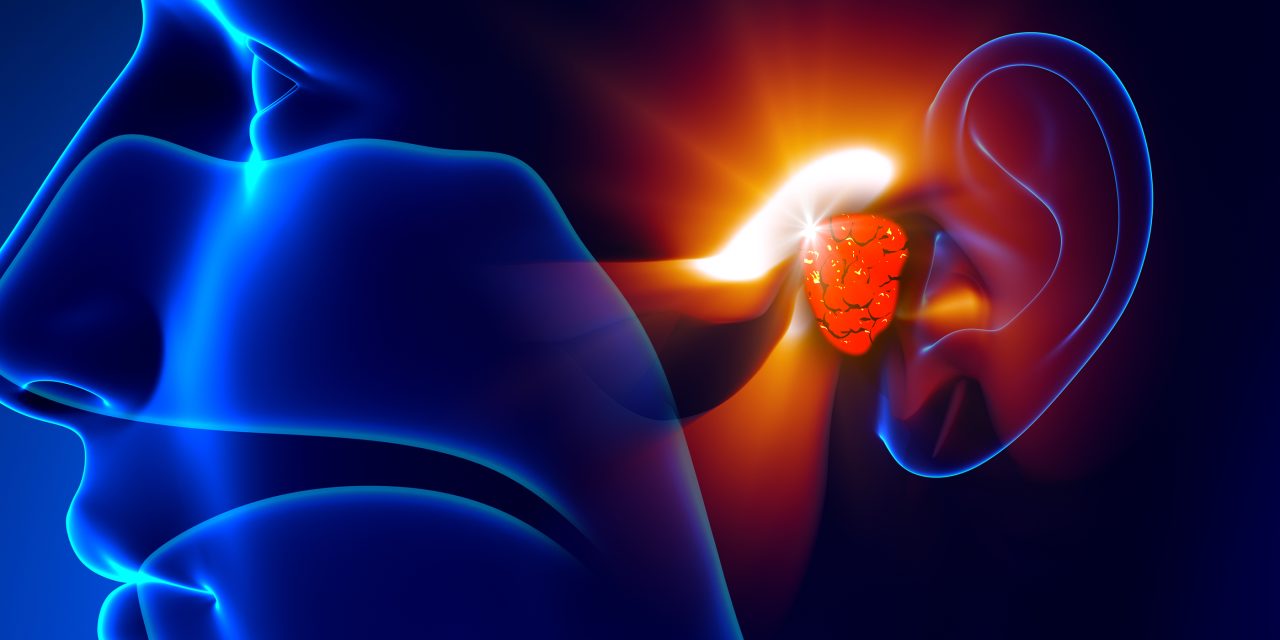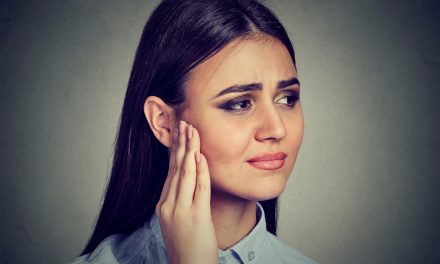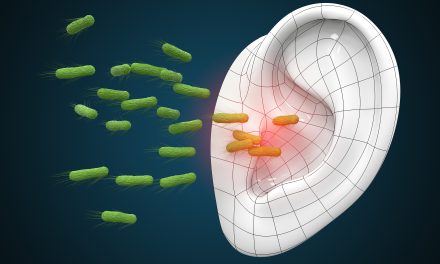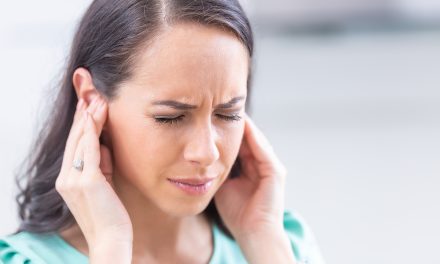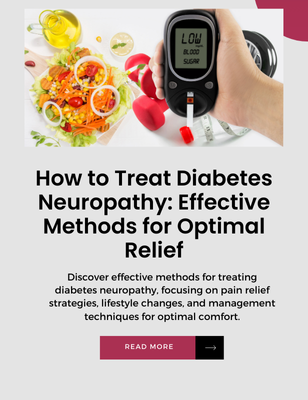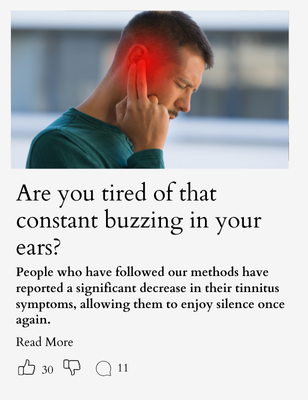Tinnitus, a persistent ringing or buzzing in the ears, can be a distressing experience for many people. It varies greatly from person to person, both in intensity and duration.
For some, tinnitus may last a short period, but in other cases, it can become a long-term condition.
Several factors influence how long tinnitus continues. These include the underlying causes, such as exposure to loud noises or health conditions.
Treatment options are available that can help manage symptoms and potentially shorten the duration of tinnitus. It is important for individuals experiencing persistent tinnitus to consult healthcare professionals for guidance.
Understanding the nature of tinnitus and its impact on daily life is crucial for anyone affected by this condition.
Through effective management and targeted strategies, those living with tinnitus can find relief and improve their quality of life.
Key Takeaways
- Tinnitus duration varies and can sometimes become long-term.
- Managing symptoms and seeking treatment can help mitigate the effects.
- Understanding causes can aid in addressing and reducing its impact.
Understanding Tinnitus
Tinnitus is often described as a ringing in the ears, but it can include various other sounds like buzzing or clicking. Its characteristics vary widely, making it challenging to address.
Pulsatile tinnitus is a distinct form that beats in time with the heartbeat, which can indicate other underlying issues.
Definition and Types
Tinnitus is the perception of sound without an external source. The most common type is subjective tinnitus, heard only by the individual. Another form is objective tinnitus, which can be detected by others and is rare.
Subjective tinnitus often appears as ringing, while objective tinnitus can involve muscle contractions or vascular issues. Some people may experience tinnitus temporarily, while for others, it becomes chronic.
Common Symptoms and Variations
Symptoms of tinnitus include hearing sounds like ringing, hissing, or roaring. Variations depend on individual experiences and environmental factors.
Some people report a constant sound, while others notice it at specific times, such as in quiet settings. According to research, tinnitus can either develop suddenly after noise exposure or gradually over time. This variability makes diagnosis and treatment more complicated.
Pulsatile Tinnitus and Its Significance
Pulsatile tinnitus is unique because it aligns with the rhythm of the heartbeat. This can often point to vascular disorders or increased blood flow near the ears.
It’s important to identify this type, as it might signify conditions like high blood pressure or abnormal blood vessels. Knowing whether tinnitus is pulsatile is crucial since medical imaging can identify any related physiological causes. This helps in crafting more accurate treatment plans for affected individuals.
Causes of Tinnitus
Tinnitus can result from various causes, including certain medical conditions, medications, and environmental factors. It is important to explore these common causes to understand their impact on individuals.
Hearing Loss and Ear-Related Causes
Hearing loss often accompanies tinnitus, as both are linked to damage in the inner ear. Exposure to loud sounds can injure the delicate hair cells in the cochlea, leading to permanent hearing deficits and tinnitus.
Furthermore, conditions such as Ménière’s disease and acoustic neuroma, a benign tumor on the auditory nerve, can result in tinnitus due to their impact on the auditory pathway. Other ear-related causes include ear infections and earwax buildup, which can create pressure and lead to tinnitus symptoms.
Medications That Can Induce Tinnitus
Certain medications are known to cause or worsen tinnitus. Aspirin, if taken in high doses, is one such drug.
Nonsteroidal anti-inflammatory drugs (NSAIDs) and some antibiotics, such as gentamicin, have been reported to trigger tinnitus as well. Chemotherapy agents, particularly those containing platinum, are also linked to hearing difficulties, including tinnitus.
Patients should monitor any changes in hearing when starting new medications, especially those with known risks. Consultation with a healthcare provider can help mitigate these effects.
Impact of Noise Exposure
Prolonged exposure to loud noises is a significant risk factor for developing tinnitus. Individuals who work in noisy environments, such as construction sites or factories, often experience noise-induced hearing damage over time.
This damage can cause a persistent ringing in the ears. Concerts and loud music from headphones are common sources of noise exposure in everyday life.
Using ear protection and limiting exposure to these noise levels are crucial in preventing tinnitus.
Medical Conditions Leading to Tinnitus
Several medical conditions can lead to tinnitus symptoms. High blood pressure and heart disease contribute to tinnitus by affecting blood flow in the body, including the ears.
Conditions like diabetes and thyroid disorders also have associations with tinnitus, likely due to similar vascular or metabolic effects. Proper management of these conditions may help alleviate the tinnitus.
Recognizing these associations helps direct appropriate treatment and management strategies.
Diagnosing Tinnitus
Diagnosing tinnitus involves various tests and evaluations to understand its cause and severity. Audiologists play a critical role in assessing hearing abilities, while imaging tests can help visualize the inner ear structures. Understanding these methods is important for effective management of the condition.
Role of an Audiologist
An audiologist is a healthcare professional specializing in diagnosing and treating hearing disorders. When a patient presents with tinnitus, the audiologist conducts a thorough hearing assessment.
This often includes performing an audiogram, which measures the patient’s hearing range and sensitivity to different frequencies.
Audiologists may also use tinnitus matching tests. These tests help determine the pitch and loudness of tinnitus.
The information gathered from these assessments can guide them in suggesting personalized treatment options. Regular follow-ups with an audiologist ensure that any changes in hearing are tracked, providing a comprehensive approach to managing tinnitus.
Imaging Tests and Diagnosis
Imaging tests are sometimes used to delve deeper into possible causes of tinnitus. Magnetic Resonance Imaging (MRI) and Computerized Tomography (CT) scans are common methods.
These tests create detailed images of internal structures, helping to rule out significant underlying issues like tumors or abnormal blood vessels.
When tinnitus is suspected to stem from conditions affecting the anatomy of the head or neck, imaging tests become crucial. They help in identifying any structural abnormalities.
Although not always necessary, they provide valuable insights when traditional exams do not explain the symptoms. These tests are vital diagnostic tools that support the comprehensive evaluation of tinnitus.
Effect of Tinnitus on Wellbeing
Tinnitus can significantly impact mental health and daily life. The persistent ringing or buzzing can lead to various emotional and practical challenges.
Tinnitus and Mental Health
Tinnitus often correlates with mental health issues like depression and anxiety. The constant noise can be overwhelming, leading to feelings of frustration and sadness.
Some individuals may experience heightened anxiety due to the intrusive nature of tinnitus sounds.
Studies have shown that depression is common among those suffering from tinnitus. This condition can exacerbate existing emotional challenges or trigger new issues.
Psychological interventions, such as cognitive behavioral therapy, have been found beneficial. These therapies help patients manage their emotions, reduce anxiety, and improve their quality of life.
It’s important for those affected to seek support. Engaging with healthcare professionals can provide necessary coping strategies.
Support groups also offer a sense of community and shared understanding, which can alleviate some of the mental burden associated with tinnitus.
Influence on Daily Activities
Tinnitus can disrupt various daily activities. The persistent sound often affects concentration, making it challenging for individuals to focus on tasks.
This can impact work performance, studying, or even enjoying a quiet evening at home.
Sleep disturbances are another common issue. The ringing may prevent restful sleep, leading to tiredness and irritability.
In some cases, tinnitus forces individuals to avoid social settings. The need to escape noisy environments can alter lifestyle choices, affecting quality of life.
Practical approaches, like using white noise machines or practicing relaxation techniques, can mitigate some effects. These strategies aim to minimize disruption and help individuals maintain their daily routines despite tinnitus symptoms.
Treatment and Management of Tinnitus
Treating tinnitus involves various approaches aimed at reducing symptoms and improving quality of life. Solutions like tinnitus retraining therapy, cognitive techniques, aids, and medication are some of the strategies used.
Tinnitus Retraining Therapy
Tinnitus Retraining Therapy (TRT) combines sound therapy with counseling to help the brain ignore tinnitus sounds. The goal is to dissociate the negative associations and train the brain to perceive tinnitus as a neutral sound.
TRT often involves wearing a device like a hearing aid that produces low-level noise or music, which helps mask the tinnitus.
Counseling sessions are crucial. They educate individuals about tinnitus and equip them with coping strategies.
This therapy may require months of consistent use to notice significant progress. Research suggests TRT is effective for many, although response can vary from person to person.
Cognitive and Behavioral Therapies
Cognitive Behavioral Therapy (CBT) is a psychological method used to manage tinnitus-related stress and anxiety. It focuses on altering negative thoughts and behaviors associated with tinnitus.
By reframing how individuals think and react, CBT helps reduce the distress caused by the condition.
Therapy sessions typically involve working with a therapist to develop practical strategies for dealing with tinnitus.
CBT does not eliminate tinnitus but can make it less bothersome. Studies have shown this approach is valuable in helping people manage their symptoms and improve their quality of life.
Hearing Aids and Sound Masking Devices
Hearing aids can be helpful for those with tinnitus, especially if hearing loss is present. Hearing aids amplify external sounds, which can mask tinnitus sounds, making them less noticeable.
Many modern hearing aids come with built-in features designed specifically to combat tinnitus.
Sound masking devices are another option. These devices produce white noise or other sounds designed to drown out the tinnitus noise.
They can be worn in the ear or placed in the environment. Sound therapy can provide temporary relief and is often used alongside other treatment methods.
Pharmacological Treatments
While no medication cures tinnitus, several drugs can help manage symptoms. Some people find relief through antidepressants and anti-anxiety medications, which can reduce tinnitus-related stress.
In certain cases, doctors may also prescribe medications like corticosteroids during the acute phase of tinnitus.
It’s essential to discuss these options with a healthcare provider to weigh potential side effects and interactions. Studies indicate that medications offer mixed results, and what works well for one person may not work for another.
Lifestyle Changes and Alternative Remedies
Lifestyle modifications can play a significant role in managing tinnitus. Reducing caffeine and alcohol intake may help some people.
Regular exercise and stress management techniques like mindfulness can also be beneficial.
Alternative remedies such as acupuncture or supplements like ginkgo biloba are popular among those looking for natural solutions.
However, these treatments lack strong scientific backing, so it’s essential to proceed with caution.
Consulting a healthcare provider before starting any alternative therapy ensures safety and effectiveness. Some find improvement with these methods, though results vary.
Prevention and Risk Reduction
Preventing tinnitus and reducing its risks focus on protecting hearing and avoiding harmful substances. Taking these steps can lower the chances of experiencing tinnitus or worsening existing symptoms.
Hearing Protection
Hearing protection is crucial for preventing tinnitus, especially for those exposed to loud noise. Regular exposure to loud environments, such as concerts or construction sites, can lead to noise-induced hearing loss.
Using earplugs or earmuffs can safeguard hearing. Custom-fitted earplugs provide better protection and comfort for daily use.
Limiting time spent in loud places also helps reduce risk. For personal audio devices, keeping the volume below 60% and taking breaks can further protect hearing. Awareness and proactive measures are key in preventing damage that leads to tinnitus.
Avoiding Ototoxic Substances
Some substances can increase the risk of tinnitus. Nonsteroidal anti-inflammatory drugs (NSAIDs), certain antibiotics, and high doses of aspirin can be particularly harmful.
These drugs may damage the inner ear if used excessively.
Limiting alcohol and nicotine intake can also help, as they negatively affect blood flow to the ears. Caffeine should be consumed in moderation since it can exacerbate tinnitus in some cases.
Before starting any new medication, consulting a doctor can help identify potential ototoxic risks. This preventive approach supports long-term ear health and reduces the likelihood of developing tinnitus.
Living with Tinnitus
Living with tinnitus involves understanding its impact on daily life and finding effective ways to manage symptoms.
Key areas include learning coping strategies and accessing education and support resources.
Coping Strategies
Managing tinnitus requires a range of coping strategies.
Counseling can provide personal guidance to help individuals handle emotional stress related to tinnitus symptoms.
For some, using devices like white noise machines can mask the ringing or buzzing sounds, offering some relief.
Relaxation techniques, such as deep breathing and meditation, can reduce stress, which may lessen the discomfort caused by tinnitus.
Staying busy with hobbies or activities can also divert attention away from the persistent sounds.
Regular physical exercise can improve overall wellbeing, potentially influencing the perception of tinnitus symptoms.
Education and Support
Education about tinnitus is crucial.
Knowing treatment options, such as cognitive behavioral therapy or sound therapy, can empower individuals to make informed decisions.
Learning about the nature of tinnitus helps in understanding the causes and available management techniques.
Support groups offer a valuable platform for sharing experiences and strategies with others facing similar challenges.
Online forums and local meet-ups provide the opportunity to discuss coping mechanisms. Sometimes, these groups also invite experts to speak, offering insights into new research or treatments that could benefit those with tinnitus.
Frequently Asked Questions
Tinnitus duration can vary depending on its cause. Some people may find it resolves quickly, while others might deal with it longer.
Treatment options and underlying conditions play significant roles in how symptoms change over time.
What are the indicators that tinnitus is subsiding?
Indicators that tinnitus is subsiding include a decrease in the frequency or intensity of the ringing or buzzing sounds.
Some might notice longer periods without symptoms. Improvement is often gradual, making it essential to monitor any changes over time.
Is tinnitus typically a permanent condition or can it resolve on its own?
Tinnitus isn’t always permanent. While chronic tinnitus can persist, acute cases often result from temporary factors like noise exposure or infections and may resolve on their own.
Understanding the cause is vital in determining its potential to dissipate naturally.
What treatments are available to help alleviate tinnitus symptoms?
Treatments for tinnitus include sound therapy, cognitive-behavioral therapy, and medication.
Devices like hearing aids can also mask symptoms. Temporomandibular disorder treatment has shown promise in improving tinnitus linked to jaw problems.
It’s important to consult a healthcare provider for personalized treatment options.
What duration should one expect for tinnitus to persist after attending a concert?
After noise exposure, like concerts, tinnitus symptoms often last a few hours to a few days.
Resting the ears and avoiding further loud noises can help. If symptoms last longer, professional advice might be necessary to prevent potential hearing damage.
After an ear infection, how long does it commonly take for tinnitus to subside?
Post-infection tinnitus can last days or weeks, depending on the severity and treatment effectiveness.
Addressing the infection promptly with medical care typically leads to improvement and eventual cessation of the ringing.
How often do people experience a complete cessation of tinnitus symptoms?
Complete cessation of tinnitus varies greatly. Some individuals find relief entirely, especially if there was an underlying treatable cause.
For others, tinnitus might persist but with reduced intensity. Long-term studies have explored outcomes, finding that recovery is possible but dependent on individual circumstances.

